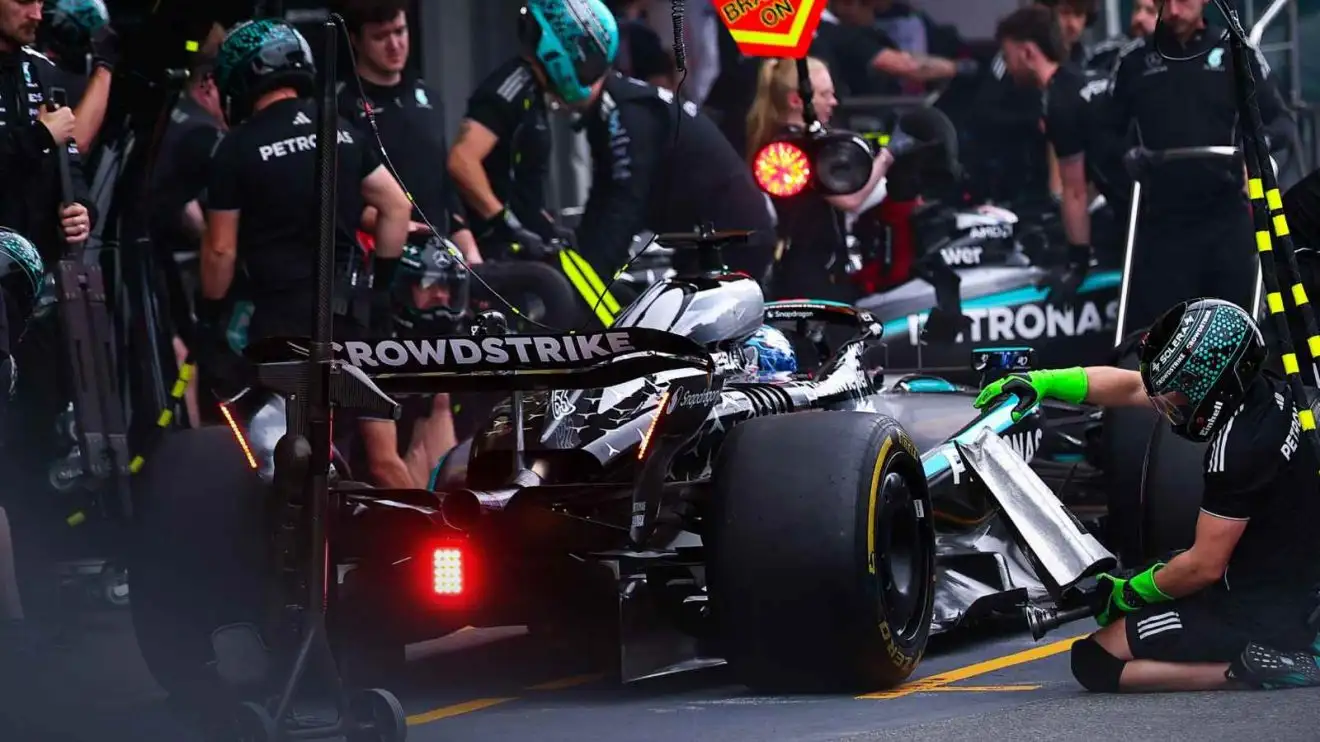F1 bosses urge ‘be careful’ over possible added F1 2026 rule change

Should a mandatory second stop be enforced next season? Team principals have weighed in.
Formula 1 team principals have urged caution over mooted proposals to make two pit stops per race mandatory from next season, in order to improve the racing spectacle.
The concept was discussed at the most recent meeting of the F1 Commission with a view to potentially introducing the new rule next season, but no agreement could be reached and the topic will instead be revisited during F1 2026.
F1 urged to ‘be careful’ over potential mandatory two-stop addition
PlanetF1.com reported the possibility of mandatory two-stop races being introduced next season several weeks ago, to which our readers voted with a majority being against the idea.
In dry conditions, drivers currently have to use two of the tyre compounds supplied by Pirelli during a grand prix distance, which forces at least one stop in a race.
However, with a possible mandatory second stop having been explored, that rule change was put to several team principals, who agreed that a second stop may force every driver onto near-identical strategies, with the “opposite effect” as intended being a possible result of such a switch.
“I think everyone likes two stops or more, but we have to be careful,” Racing Bulls boss Alan Permane told media in Brazil.
“We’ve got our guys looking at it at the moment – our strategy and tyre guys are looking at it closely. I think one of the things that makes a two-stop race tricky is when the tyres aren’t really suited for two stops, so you need to have tyres that demand the two-stop race.
More on potential mandatory two-stoppers in F1
👉 From engineering to entertainment: Why F1’s mandatory two-stop idea misses the point
👉 Have your say: Are mandatory two-stop F1 races a good idea?
“If you force a two-stop, you can end up with everyone doing the same strategy and actually have the opposite effect – and don’t forget, we’ve seen plenty of races with one guy on a one-stop and one guy on a two-stop, and then the guy on a one-stop being chased down by the two-stop – but that will obviously disappear.
“So, I think we need to think very carefully. And we are, and I’m sure the F1 Commission will debate it, and I’m sure we’ll come to the right answer.”
McLaren team principal Andrea Stella added that strategic variance often comes from the tyres in play over the course of the weekend, but that the huge switch in regulations next season could also play their part.
With that in mind, he suggested potentially waiting another year before looking at such a switch.
“I think the tyres remain the fundamental factor to have some variability in the race, and in particular, whenever there’s some degradation, I think we can see overtaking and pit stops,” Stella explained.
“At the same time, for 2026, we have so much change going on, and I think we should observe also what kind of racing we are going to have before we change the technical side and also the rules of the game, so I would invoke a little bit of prudence from this point of view.
“Let’s observe what happens in 2026, and then we can adapt from a sporting point of view to make sure that the entertainment and the racing is at the right level.”
Williams team principal James Vowles observed the potential one-size-fits-most strategic plans that could arise as a result of forcing cars to stop twice, and while he is not against such a switch in theory, he would urge looking at how races may be impacted before committing to this change.
“I think just to take the good work that was done here already – but my biggest worry would be that we end up, all of us, doing the same strategy to within a lap of each other because you’re forced that way because of the two stops,” he said.
“So, to the key point, let’s get the key foundations right, which is tyre degradation and the gaps between the tyres.
“I don’t mind a forced rule then that puts us in that circumstance, but I have a worry that immediately where we are now – I think you’ll get less variability in next year’s races, and that concerns me.”
Read next: Max Verstappen advantage identified by Damon Hill as F1 2025 title theory debunked

